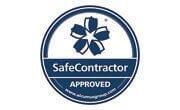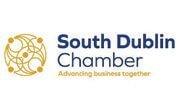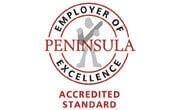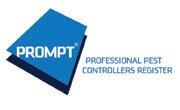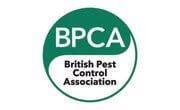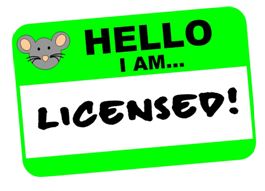
Pest Control Legislation & Regulations in Ireland
Operators carrying out rodent control commercially after 01/01/2018 must be able to produce a valid licence or PMU number delivered by the Department of Agriculture (DAFM-PRCD division). For more details click on this link: The Licensing of Irish Pest Controllers From 01/01/2018
In order to keep their licence, Professional Pest Controllers must also participate in the required Continuous Professional Development (CPD / CPE). They must therefore be in a position to produce a valid CPD card for the DAFM or their customers. For more details click on this link: “Trained Professional Users” – How to Register with BASIS Prompt CPD Scheme?
Food Safety Legislation in Ireland – Pest Control Legislation
Since April 1998, food businesses in Ireland are required by law to have a food safety management system in place, based on the principles of HACCP (Hazard Analysis, Critical Control Points).
The Food Safety Authority of Ireland (FSAI) was set up in 1999 to oversee the safety of food from ‘farm to fork’. The Authority officers have full powers to enter premises, seize documents and samples, issue improvement notices and closure orders and to prohibit the sale of food considered unfit for human consumption.
The control of pests is an important part of Food Safety Legislation. For example:
Extract from Regulation (EC) No 852/2004 (where relevant to pest control)
- As far as possible to prevent animals and pests from causing contamination;
- Food business operators producing or harvesting plant products are, in particular. to keep records on any use of plant protection products and biocides; any occurrence of pests or diseases that may affect the safety of products of plant origin;
- Regarding GMP: ‘procedures, practices and methods to ensure that food is produced, handled, packed, stored and transported under appropriate hygienic conditions, including effective cleaning and pest-control’;
- Permit good food hygiene practices, including protection against contamination and, in particular, pest control;
- Premises and vending machines are, so far as is reasonably practicable, to be so sited, designed, constructed and kept clean and maintained in good repair and condition as to avoid the risk of contamination, in particular by animals and pests.
- Refuse stores are to be designed and managed in such a way as to enable them to be kept clean and, where necessary, free of animals and pests;
- Adequate procedures are to be in place to control pests. Adequate procedures are also to be in place to prevent domestic animals from having access to places where food is prepared, handled or stored.
IS 340:1994 Hygiene in the Catering Sector – Section 5: Pest Control Legislation:
- Rodents, birds, insects, domestic animals shall be excluded in as far as is practically possible from the catering premises and surrounding grounds.
- 5.2 Specific requirements: (iii) Air intake points and opening external windows in the food preparation area shall at least be fitted with fly screens (mesh size No. 16 – 1.2 mm gap).
- Detailed inspection of the premises and equipment shall be carried out at least every three months for evidence of infestation by insects or rodents. The inspection shall be carried out by a competent person and shall include the roof space if appropriate.
- External doors shall be rodent proof (i.e. gaps not exceeding 6mm) and personnel doors shall be fitted with self closing or protected by an internal lobby with self closing doors. The external doors shall not be left open.
- If evidence of infestation is found in or around the premises action shall be taken to control and eliminate the infestation.
- Cardboard baiting traps shall not be used in wet areas. (IS 341 /Section 6.2.2 (iv) records should be kept of location.
- If insect electrocuters are used they shall be / located, not more than 2.4.meters from the floor, in an area free from drafts, away from natural/ light and preferably not above an area where food is exposed, they shall be left on permanently (unless the plant is closed for more than 7 days), shall be fitted with catch tray and the U.V. tubes shall be replaced at least annually.
- Fly or insect sprays and materials which release chemicals to kill flies or insects shall not be used in areas where food is stored, prepared or cooked.
Other Pest Control Legislation Affecting Pest Control Activities
- The Safety, Health and Welfare at Work Act 2005
- The Waste Management Act, 1996
- E.C. Authorisation, Placing on The MArket, Use and Control of Biocidal Products Regulations, 2001
- The Dangerous Substances (Amendment) Act 1979
- The Rats and Mice (Destruction) Act 1919
- The Protection of Animals Act 1911 & (Amendment) 1965
- The Wildlife Act 1976 and (Amendment) 2000
- The Wild Birds Protection Act, 1930
- 2018 New Rules on Rodenticide Use in Ireland
Related content: Food Industry Standards in Ireland
ASK A PEST CONTROL SPECIALIST
Qualified and Fully Licensed Pest Control Technicians
Owl Pest Control Dublin is a member of the NPTA (National Pest Technicians Association), BPCA (British Pest Control Association), IPCA (Irish Pest Control Association), and is actively taking part in the development of the Pest Control Industry in Ireland. Our Technical Staff are licensed by the Department of Agriculture & consist of Filed Biologists, Highly Qualified Pest Control Technicians, Senior technical staff with over 15 years professional experience & qualifications including Postgraduate Degrees; Cork University, RSPH, BPCA, IPCA, Kilgerm & HACCP diploma
